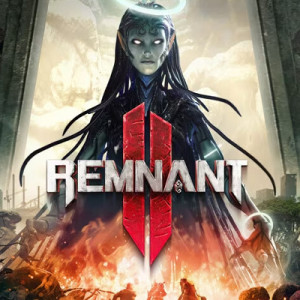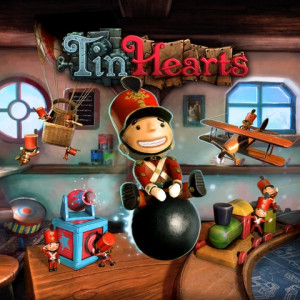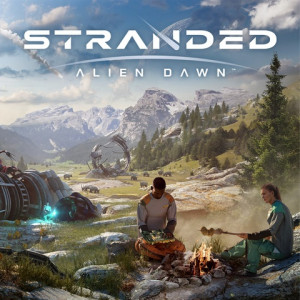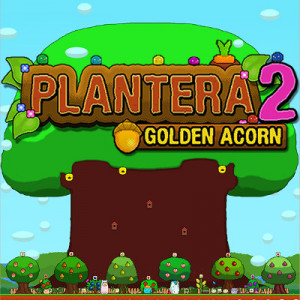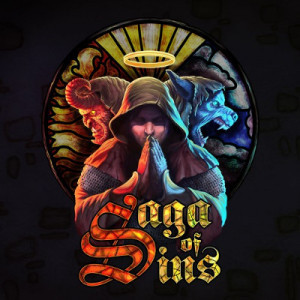Tenchu 3: Wrath of Heaven Review
Facts previously known about ninjas:
1. Ninjas are mammals.
2. Ninjas fight ALL the time.
3. The purpose of the ninja is to flip out and kill people.
New facts about ninjas, after playing Tenchu: Wrath of Heaven:
4. Ninjas hate zombies.
5. Video games about ninjas are totally sweet.
The aforementioned game, Tenchu: Wrath of Heaven - also called Tenchu 3 - is a real mindblower. It grabs you by the head, pulls you forward, and knees you right in the face with excellent gameplay and a veritable multitude of moves that would make Bruce Lee wet his baggy kung fu pants.
The basic premise of the game is fairly simple. You play one of two ninjas, the inscrutable Ninja Gaiden-esque master of stealth Rikimaru, or the chest-heavy, leather-wearing female ninja Ayame. I guess she's good at stealth, too, although one would expect all that leather to creak when she walks. You follow either Rikimaru or Ayame through a series of missions, each ninja having a different set of missions - although they do at times overlap and certain areas are frequented by both ninjas in the course of their quests.
Both ninjas have the same basic moves, with simple, easy-to-perform combos and a variety of cinematic, one-hit-kill stealth attacks that can only be executed when the enemy is unaware of your presence. These stealth attacks were probably the core of the game for me, as properly executing them can at times take planning and extreme patience. If the intended target spots you before you're close enough to execute the stealth attack, you've blown your chance and will either have to flee and regroup for another attempt or fight it out in the open - an option which can oftentimes prove quite deadly and troublesome, as it is likely to attract the attention of other enemies in the area.
Unlike many stealth action games where survival is the only reward for your decision to hide amongst the shadows, in Tenchu: Wrath of Heaven executing stealth kills leads to the opportunity to unlock new abilities for your ninja, many of which are almost essential to the successful completion of later missions. Every time you perform a stealth kill in the course of the mission, one of ten figures in the lower left hand corner of the screen begins to glow. Particularly slick stealth kills - such as killing an opponent head-on without being detected - may result in more than one figure being added to your tally. Once all ten figures are glowing, your ninja enters a brief cinematic sequence and is endowed with a new ability, which can range from relatively simple things like the ability to knock an enemy away from you, to very risky tactics like faking your own suicide to lure enemies into a trap.
While the graphics in Tenchu: Wrath of Heaven are nothing special, they're definitely on par with the current state of the gaming industry and certainly don't disappoint. The general style of the graphics fits the overall feel of the game: gritty, dark, and dangerous. From the muted opulence of a richman's dwelling to a chaotic trap-filled castle, each setting feels perfectly suited to infiltration by a master of the stealth arts. They may as well be stamped with "Ready to Play Level Environment, Just Add Ninja". In addition, each mission has three different layouts which can be played through, effectively increasing the number of scenarios threefold. Only the first layout needs to be completed in order to proceed to the next mission, though.
Speaking of level design, this is one of the few points where I feel the game falls short of the mark. Although they aren't BAD levels, the layout of many of the areas became far too linear and began to cramp my ninja style. Whereas in the first of Rikimaru's missions, you are presented with a large and open area with your target at the center, truly providing you with three degrees of movement and exploration, later levels fall into the all-too-common trap of "Get from Point A to Point B, killing everything in your path." Many times, the possibilities for stealth are extremely limited, basically coming down to hiding at a corner until the enemy has come close enough to kill. Not that it wasn't still fun, but it was a far cry from the open-ended feel of the very first mission, where you were encouraged to jump from rooftop to rooftop, dropping from the shadows to kill a solitary guard before once more retreating to the safety of the roof of some building.
Due to the linear arrangement of the later levels, when you happen to encounter more than one enemy in the same room, stealth can become almost impossible. Imagine two guards constantly watching each other. Now, imagine trying to sneak up on one of them. Truly, it takes a ninja to accomplish something so difficult. This, in particular, is where the special abilities unlocked by stealth kills really come into play. Without the added options of earned special abilities, some of the situations would be 100% impossible to execute stealthily.
In addition to learning new abilities, Rikimaru and Ayame bring with them a wide assortment of the sort of equipment one would expect any self-respecting ninja to carry: shurikens, blowguns, grappling hooks, poisons, salves, smoke bombs, and many more. Using these items effectively is the key to getting yourself out of a tricky situation. For instance, been spotted by some guards? Toss a smoke bomb at your feet and vanish back to the shadows in typical ninja style while your assailants are left coughing and blinded.
But figuring out how to use these tools of the trade can at times be a daunting task, as another thing Tenchu: Wrath of Heaven lacks is a decent tutorial mode for its somewhat complex and varied assortment of techniques and equipment. A master list of moves and tactics is provided, but unlike games such as Splinter Cell and Mark of Kri, no playable comprehensive tutorial is present in the game. As such, some players may be left in the dust when it comes to how certain things work. In the long run, though, the gameplay is rather intuitive and this is only a minor foible in terms of the overall picture. After an hour or so of playing, just about anybody should be a ninja master.
Speaking of ninja masters, how can a ninja gauge the extent of his expertise and cunning? Well, in Wrath of Heaven, a point system is used to determine the aptitude the player demonstrated in remaining stealthy in the course of the mission, not unlike the grading system Hitman 2 used. Heavy-footed, incompetent ninjas may find themselves with the ranking of 'Thug', whereas only the finest will ever achieve the title of 'Grand Master'. Although it's possible to simply fight your way through a level, most people won't want to, as this reduces the game to something less than it is and also makes many situations needlessly difficult. Unlike a kung fu movie, enemies in Wrath of Heaven won't hesitate to gang up on a ninja.
As for the controls players have to work with, most are ridiculously simple and easy to use. The combo system is merely a matter of repeatedly pressing the attack button (although more deadly and useful moves may require slight alterations to this scheme, such as the inclusion of a brief 360 on one of the analog sticks) and stealth kills are delightfully easy to execute, assuming you can get up close to your enemy without being spotted. The grappling hook functions more like a motorized ninja zipline than a true grappling hook, but it certainly does its job well enough and it looks stylish, too. At times, I'd pull off awesome moves by accident, such was the ease of their execution - for instance, performing an accidental backwards roll off a roof and ending up hanging from it by my hands saved me from certain death a number of times, despite usually being unintentional.
One final thing to mention about the game is that the hit detection is very loose - this, however, can be either a boon or a curse. Since hitboxes for most objects tended to be large cubes that sometimes extended a foot or more past the apparent end of the object, it's often all too easy to hit the wrong surface with your grappling hook and drop yourself down a ubiquitous bottomless pit. On the other hand, this came in handy when fighting enemies, where your blows only had to land somewhat near your opponent to do damage. Again, this is only a minor issue and one that I hardly noticed after I dragged myself down a bottomless pit the first time.
Somewhat uninspired level design and other minor issues aside, the game is a real knock-out. Couple excellent single player gameplay with Tenchu: Wrath of Heaven's promising and rockin' co-op multiplayer and you've got one hell of a good time. This game is great to either rent or buy, but to get the full experience of the game you'll probably have to either rent it multiple times or buckle down and buy it. The allure of additional abilities for my ninjas and the possibility of unlocking a third playable character kept me coming back day after day, and resulted in my returning the game to the rental place several days late. Alas, my five dollars, I knew them well.
All in all, a hell of a good game.

